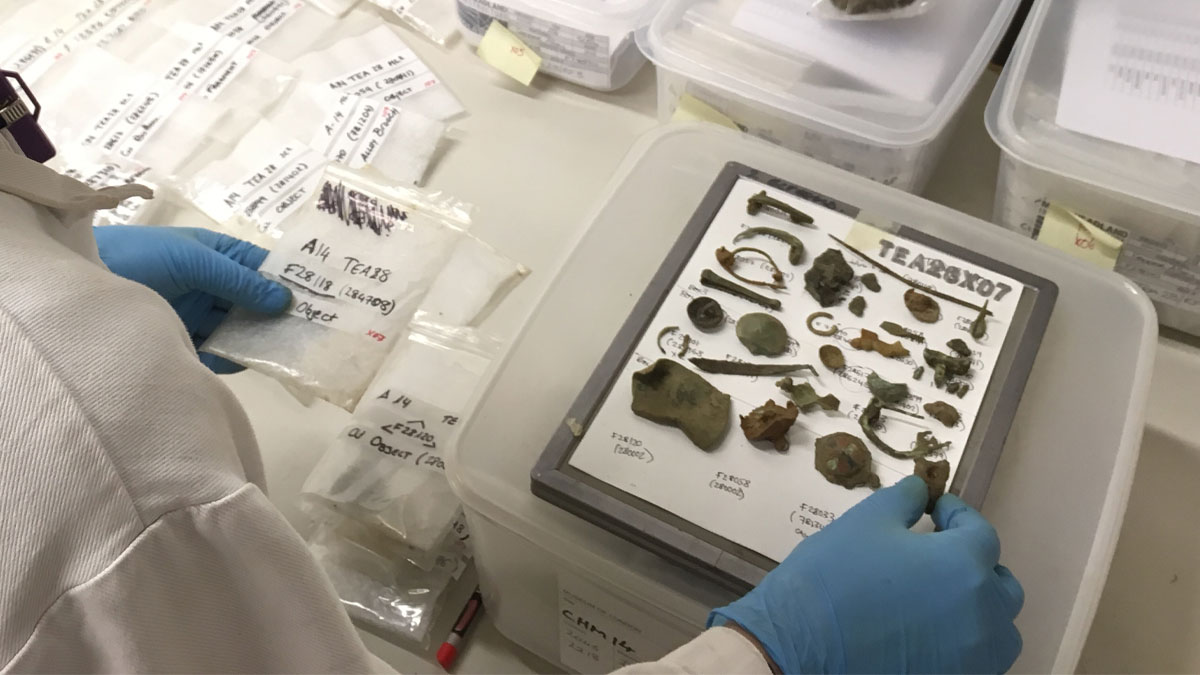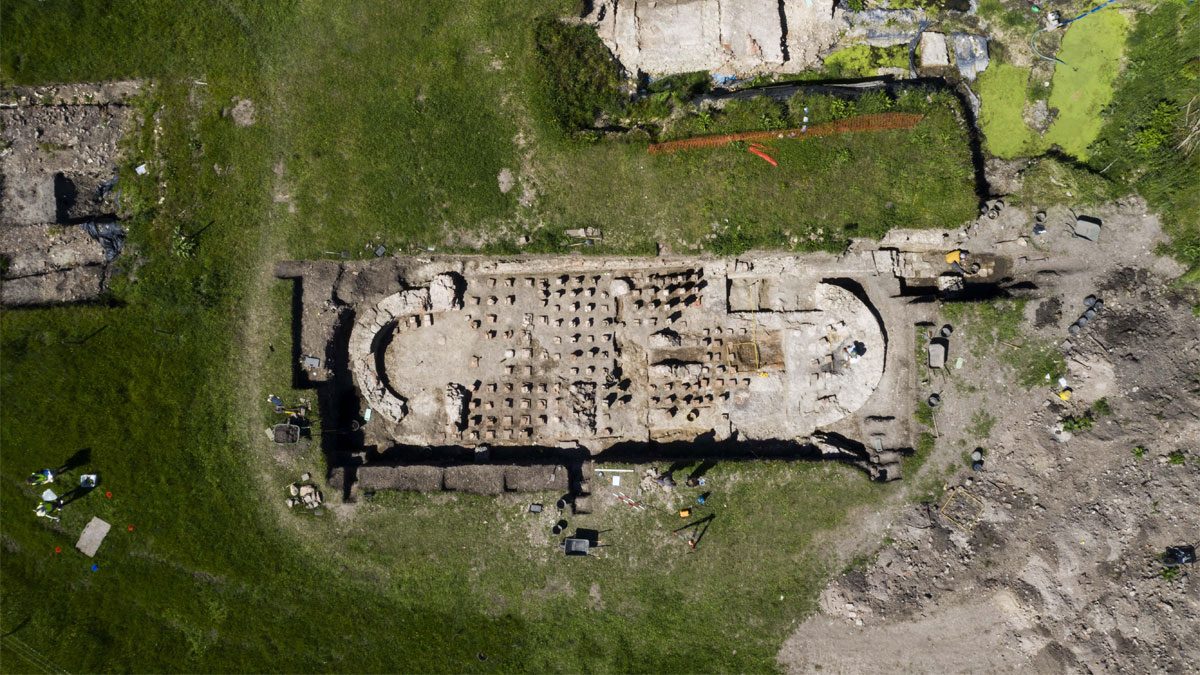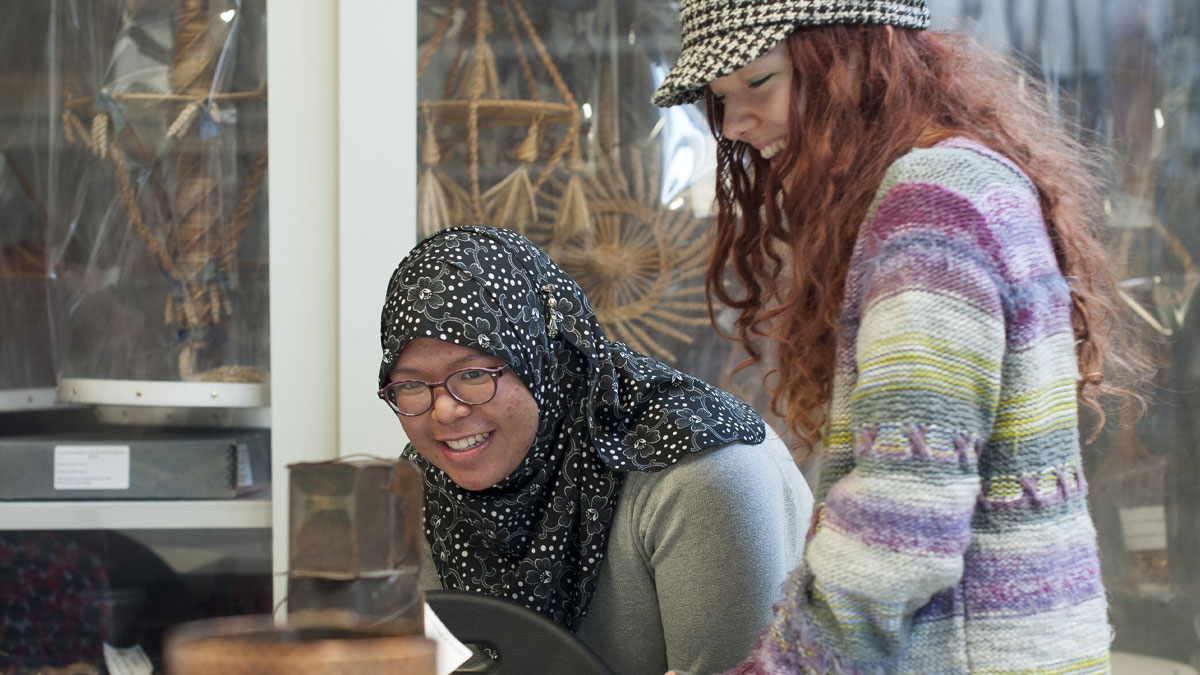The University of Reading is in the top 100 in the world for Archaeology (QS World University Rankings by Subject 2024) and scored 2nd best for teaching quality in Archaeology (The Times & Sunday Times Good University Guide 2024).

Exciting career opportunities
Archaeology is more than studying the past: it's a discipline that actively prepares you for the job market. You'll develop an impressive range of practical and academic skills, whether you want to move into the archaeology or heritage sectors, or enter a wide range of other industries and careers.
There is currently a rising demand for archaeologists to investigate the archaeological remains being revealed by major infrastructure projects in the UK, such as HS2, A303 and A14, and by smaller projects such as new housing estates. A recent report by MOLA-Headland Infrastructure provides an overview of the types of roles available in the sector.
In addition to professional archaeology, many of our students have pursued careers in the broader heritage sector, working in and with heritage trusts and museums. In this sector, you'll have the opportunity to use the skills you've developed during your degree – including object handling, curation, illustration, presentation and analysis.
"A degree allows you to make a passion into a profession, and Reading is an excellent place to do this."
Tim MacDonald Watson, BA Archaeology
Many of our graduates use their breadth and depth of expertise across the humanities and sciences to enter a wide range of careers such as teaching, policing, industry and commerce. Some have gone on to work for companies such as British Airways, British Gas, Thames Valley Police and the NHS, as well as broadsheet newspapers, charities, and engineering and financial consultancies.
The University has long-established, excellent relationships with employers within the archaeology and related sectors, including Oxford Archaeology and Cotswold Archaeology – both of which regularly consider our graduates for vacancies.
Accreditation
Our BA Archaeology degree is accredited by the Chartered Institute for Archaeologists (CIfA). Our courses were among the first in the country to be recognised for providing key skills relevant to careers in the historic environment.
At Reading, you'll be offered student membership of CIfA, giving you access to their e-learning modules, specialist professional networks and details of jobs in the profession.
Learn from the past
Our shared archaeological heritage is currently the focus of important debates: what is heritage worth? Who writes the stories of our past? Does everyone feel connected to the past?
Our degrees will encourage and help you to explore these questions further, and to think critically about the many roles that are played by your archaeology and your heritage.
At Reading, we are especially focused on issues from the past that are critical to our shared global future – economic risk and resilience, human diets and health, climate change, and inequality, migration and identity.
We address these contemporary issues by examining changes in human society over the past millennia, helping us to understand how the big issues of the day have roots in the past or how previous cultures have tackled the same problems.
Make new discoveries
The field of archaeology is constantly evolving, allowing you to discover new things or reinterpret humanity through the ages.
Students at Reading have made important contributions to archaeological research and methodology. During her studies, Rosie Howard developed a new methodology for extracting and detecting hormones from bone.
A supportive community
The Department of Archaeology fosters a friendly, supportive community and our staff have a reputation for being accessible and approachable.
In the National Student Survey 2023, 93% of our students said that teaching staff supported their learning well or very well (92.59% of respondents studying in the Department of Archaeology) and 100% of students said that our teaching staff were good or very good at explaining things.
"The staff are all leaders in their respective fields, but that does not make them unapproachable; the professors are constantly criss-crossing the atrium to consult with colleagues and commune with students. Despite this informality, staff hold their students to a high academic standard that has put the department among the ranks of the best programmes in the UK."
Mike Murray, Archaeology graduate
You'll also have the chance to join RUined, a student-run society for students passionate about archaeology. RUined is a great way to meet people across Reading, build your network, and participate in events like club nights, quizzes, and the annual summer and winter formals.
Placement opportunities
Placements are a great way to enhance your employability and develop your network. Placements can be found across the archaeological, heritage, planning and museum sectors, or you can find a placement beyond the field of archaeology to explore your interests and expand your career options.
Build your portfolio of experience with a summer placement in an external organisation, or take a full year of professional experience between your second and final years of study.
We have a dedicated member of staff who will provide you with advice and support in your search for a placement.
Work experience on campus
Our three on-campus museums — the Ure Museum of Greek Archaeology, The Cole Museum of Zoology, and the Museum of English Rural Life — offer many opportunities for you to gain volunteer experience in the museum sector. We also have a partnership with the University of Reading Special Collections and Reading Museum, which allows you to apply to volunteer at all these organisations via a single online platform.
There are also opportunities to undertake research placements in the Department.
“The Undergraduate Research Opportunities Programme and the Reading Internship Scheme are both great initiatives which can give you valuable experience, and there are also lots of opportunities for paid and voluntary work on campus. I volunteered at the Museum of English Rural Life and the Ure Museum which later led to some paid work.”
Matthew Abel, BA Museum Studies and Archaeology graduate
Study abroad
The Department of Archaeology has active links with universities in Europe and farther afield. For details of our current exchanges, please visit the Study Abroad website and select ‘Archaeology’.
All classes are conducted in English and bursaries are available to help with travel and accommodation costs.

Our courses
Explore issues from the past that are critical to our shared global future, with our flexible undergraduate courses. Tailor your degree to the topics and periods in which you're most interested.

How you'll study

